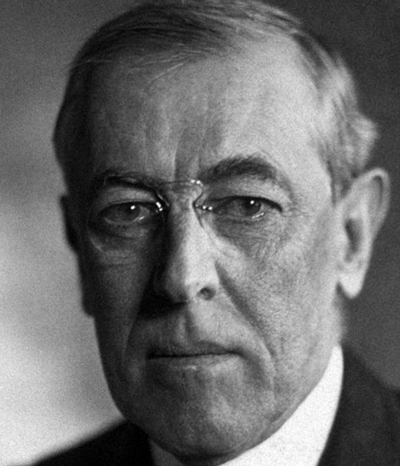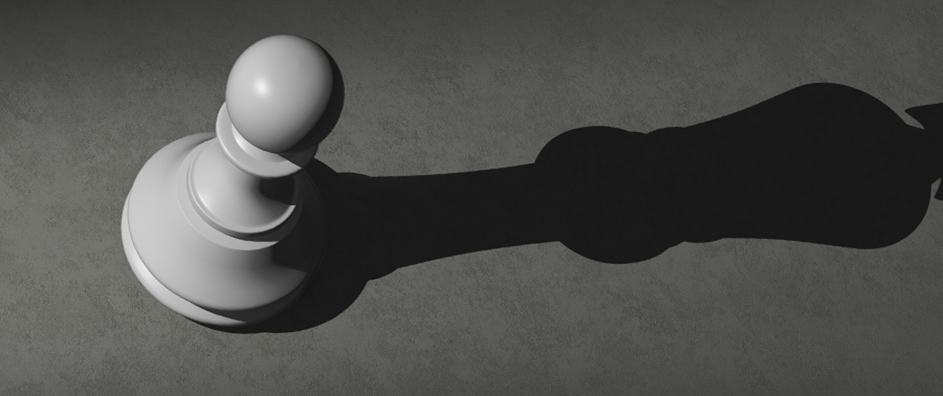The views expressed in our content reflect individual perspectives and do not represent the authoritative views of the Baha'i Faith.
The just king is the shadow of God in the earth; all should take refuge under the shadow of his justice and rest in the shade of his favor. This is not the place for personalities, or censures [directed] specially against some apart from others; for the shadow tells of him who casteth the shadow. – Abdu’l-Baha, A Traveller’s Narrative, p. 65.
My father played a game with me when I was a small child—we called it “The Shadow Knows!” I think he invented the game himself, and got the name from an old radio show he listened to when he was growing up, which I heard exactly once. The dramatic introduction to that show became famous, apparently, when it began airing in the 1930s. It went like this, in a deep, scary voice: “Who knows what evil lurks in the hearts of men? The Shadow knows!”
Our game—appropriate for a three-year-old boy who hadn’t yet developed the facility of logic—involved a lot of running around and hiding and laughing. The game had one goal: to outrun your own shadow. Yes, I know—no one can outrun their own shadow, but it was fun to try.
So, with that in mind, what do you think Abdu’l-Baha means in the quote above when he writes “the shadow tells of him who casteth the shadow?”
On the surface, this short quote advises us to refrain from censuring or unduly criticizing rulers, kings and political leaders. Abdu’l-Baha seems to suggest that referring to personalities, or blaming one leader as opposed to another, is a fruitless exercise. Instead, he recommends that we can all clearly see the effects of a leader’s governance, just as we can all see the shadow a person casts. The outline of that shadow, just as I discovered as a three-year-old, faithfully follows us everywhere, constantly reproducing our exact outline in light and dark. You can’t shake your shadow.
In his Will and Testament, one of Abdu’l-Baha’s most important writings, he expands on that advice about shadows by counseling us to treat our public servants just as we would treat any person—with respect and honor. He asks us to refrain from slandering our political leaders, obey just governments and never wish evil on those who govern us:
According to the direct and sacred command of God we are forbidden to utter slander, are commanded to show forth peace and amity, are exhorted to rectitude of conduct, straightforwardness and harmony with all the kindreds and peoples of the world. We must obey and be the well-wishers of the governments of the land, regard disloyalty unto a just king as disloyalty to God Himself and wishing evil to the government a transgression of the Cause of God. – Abdu’l-Baha, The Will and Testament, p. 8.
So maybe the shadow a leader casts tells us everything we need to know about his or her leadership. If we have peace-loving leaders, they will cast a peaceful shadow, and we will live in a peaceful country. If we have leaders who aspire to their own enrichment and advancement, the shadow they cast will be just as obvious—it will reflect the corruption in their souls, and the corruption in their nation. If we have warlike leaders, their violent and death-producing shadows will follow them everywhere. A leader’s shadow—their innermost motives, Abdu’l-Baha seems to be telling us—will always become obvious sooner or later. We can see those shadows simply by observing what follows from a leader’s actions.
Abdu’l-Baha also seems to be telling us to choose our leaders carefully, by evaluating not only their public reputation and their carefully-marketed “brand,” but by considering the actual outcomes of their policies. Are those policies just? We should ask that question of each of those policies, and then, on balance, make up our minds to retain or replace that leader.
Peace, justice and consideration for the rights of all—those are among the criteria that should inform our choice of leaders, according to the Baha’i teachings. We get a clue about these qualities of leadership from a short passage of praise for the American president Woodrow Wilson, written in 1919 by Abdu’l-Baha:
The President of the Republic, Dr. Wilson, is indeed serving the Kingdom of God for he is restless and strives day and night that the rights of all men may be preserved safe and secure, that even small nations, like greater ones, may dwell in peace and comfort, under the protection of Righteousness and Justice. This purpose is indeed a lofty one. I trust that the incomparable Providence will assist and confirm such souls under all conditions. – Abdu’l-Baha, Selections from the Writings of Abdu’l-Baha, p. 109.

President Woodrow Wilson
At that time in history, President Wilson, a Democrat, had helped broker the Armistice agreement that ended World War I. After the publication of his Fourteen Points for the establishment of a continuing peace, he traveled to Paris to promote the formation of the League of Nations, the world’s first attempt at an international governing body. A progressive leader in many respects, Wilson supported women’s suffrage; advocated for the establishment of the Federal Trade Commission to prevent the formation of monopolies; backed a nationwide minimum wage and unemployment compensation; helped establish the eight-hour work day by mediating a national railroad strike and settling it in favor of the union; and appointed Louis Brandeis, the first Jewish member of the Supreme Court.
But President Wilson also had to placate Southern politicians by supporting Jim Crow racial laws and policies, and by famously saying to protesting black soldiers that “segregation is not a humiliation but a benefit.” Wilson also, as the President of Princeton University, refused admission to black students.
You can see, even from this brief summary, that the American president a hundred years ago had a combination of light and darkness in his policies and political views. Despite the shadows, the Baha’i teachings honor Woodrow Wilson for the efforts he made toward establishing world peace. By acknowledging and praising that primarily spiritual motive, Abdu’l-Baha aptly exemplified the Baha’i principle to “Never speak disparagingly of others, but praise without distinction.” – Abdu’l-Baha, The Promulgation of Universal Peace, p. 453.
If you’re ever in Washington, DC, you can visit President Wilson’s tomb at the National Cathedral—he is the only U.S. President interred in the District of Columbia. Or if you’re in New Jersey, on the campus of Monmouth University, stop by Woodrow Wilson Hall, on the site of Wilson’s “summer White House” of 1916. He called it Shadow Lawn.
Next: The World’s Poorest President
















Comments
Sign in or create an account
Continue with Googleor